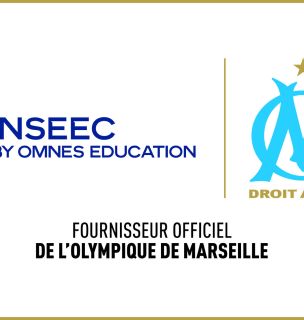The Financial Markets and Trading course meets the expectations of recruiters looking for expert profiles in the digital transformation of banks
“This program prepares you to become an experts in the fields of asset management, trading and risk management: Equity Analyst, Fund Manager, Oil Trader, Sales, International Treasurer, RCCI and Middle Officer are some examples of positions held by our alumni.
The teaching is strictly quantitative (computational, statistical and digital), and covers the foundation of modern finance but also the latest developments: FinTech, Smart Contracts, Big Data, stochastic simulations, fractals, behavioral finance, Excel and VBA and R.
Students are taught of innovative techniques and are regularly put in situations based on real cases, thanks in particular to the presence of a Bloomberg trading room within the school.
With over 15 years of experience, this program has a network of over 500 alumni.
The Autorité des Marchés Financiers (AMF) certification exam is scheduled during the program, with further training on the Bloomberg terminal possible after obtaining the Bloomberg Market Concepts (BMC) certification in MSc 1.
Ellen Kountz, Program Director – Paris Campus

A 1 or 2 year degree to become an expert in asset management, trading and risk management
Holders of a 3-year bachelor degree can apply for the first year of the MSc, and holders of a 4-year bachelor degree can apply directly for the second year of the MSc.
n 1 or 2 years, this program will teach students:
- To apply knowledge of securities (stocks, bonds, foreign exchange, commodities) after learning about the mechanisms of the market
- To account for the structure of interest rates and money market conditions and neutralize financial risks using their knowledge of derivatives
- Behavioural finance and related subjects: explaining price fluctuations by the behaviour of individuals who are not always rational—psychology applied to finance
- To continue and expand e-learning courses in French and/or English on specialized tools and terminals for financial market operators.
How to apply to the MSc Financial Markets, Trading program at INSEEC?
The required prerequisites
The conditions for accessing the certification system (excluding VAE) are:
- For entry into the 1st year of the course (MSc 1): to have validated 180 ECTS (level 6, License or equivalent) in the field of marketing, commerce, management or communication. He must have a professional level of English for the English-speaking program.
- For entry into the 2nd year of the course (MSc 2): to have validated 240 ECTS (level 6, Master 1 or equivalent) in the field of marketing. He must have a professional level of English for the English-speaking program.
- Executive training is subject to specific prerequisites with professional experience taken into account.
Want to know more about the MSc in Financial Markets, Trading program ?
Sign up for an Open House!
Would you like to know more about the admission conditions for our programme in Financial Markets, Trading ?
The Courses
The courses presented below are given as an example, they may vary slightly depending on the teaching campus. The course content is adapted each year to market developments and updated before the start of each new school year.
1st year courses
PROFESSIONAL METHODS AND PRACTICES – 1ST YEAR
- Fundamentals of Capital Markets
- Corporate Accounting
- Contract and Business Law
- Financial mathematics
- Introduction to Technical Analysis
- Excel
- Big Data in the banking environment
- Taxation, wealth and investments
- Portfolio management
- Real estate and asset management
- Credit analysis
- Financial risk management in the bank
- Monetary policy and bank balance sheet management
- Finance tools and model
PROFESSIONAL METHODS AND PRACTICES- 2ND YEAR
STRATEGIC ANALYSIS
Quantitative Technical Analysis
This course explores the quantitative methods used to analyze trends and patterns in financial data. Students will learn to apply statistical tools and algorithms to identify trading opportunities and make informed decisions in the financial markets.
Strategy & Forecasting Techniques
This course focuses on the different strategies and techniques used to forecast financial market movements. Students will study predictive models, regression methods and other approaches to assess trends and anticipate fluctuations in financial asset prices.
Quantitative Finance
Quantitative aspects of finance are studied, with an emphasis on the application of mathematical, statistical and computational methods to solve financial problems. Students will study topics such as option pricing, risk management and portfolio optimization using advanced quantitative tools and models.
Financial Markets & ESG
This course approaches the financial markets with a focus on environmental, social and governance (ESG) considerations. The financial implications of ESG factors, the integration of these factors into investment decisions and the associated reporting practices are all covered by the end of the module.
Applied Research Dissertation
The applied research dissertation aims to develop analytical and reflective skills around a managerial issue. It provides an opportunity for students to demonstrate their rigor in analyzing a problem or managerial issue and formulating operational recommendations. The research dissertation reflects the student’s research work and enhances the professionalism of the course.
CONTROL & MONITORING
Excel, VBA Applied to Finance
Practical skills in using Excel and VBA (Visual Basic for Applications) in a financial context are covered. This module teaches how to automate tasks, create sophisticated financial models and analyze financial data.
C++
This course focuses on C++ programming in the field of finance. Fundamental concepts of object-oriented programming and how to apply them to develop advanced financial applications, such as automated trading systems.
Blockchain, Cryptocurrency and Trading
The use of cryptocurrency, the foundation of blockchain technology, is covered in this module. The different types of cryptocurrencies, consensus mechanisms and trading strategies associated with these digital assets are thus addressed from a financial perspective
Behavioral Finance
The psychological and behavioral aspects of financial decisions will be studied in this module. Students will study the cognitive biases, emotions and errors of judgment that can influence financial markets, and learn how to take them into account in their analysis and investment decisions.
Data Science & Machine Learning
This course explores the application of data science and machine learning to finance. Students will learn to use data analysis techniques, machine learning algorithms and statistical models to solve complex financial problems and make data-driven decisions.
FINANCIAL ACTIVITIES
Bond Markets
This course will cover bond markets and their related investment strategies as well as bond characteristics, the different types of fixed-income securities and bond valuation methods.
Commodities Trading
This course examines commodity markets and related trading strategies. Students will study the factors influencing commodity prices, the trading mechanisms on these markets and the risk management methods specific to this sector.
Equity Market Trading
This course focuses on equity trading on the financial markets. It covers stock selection techniques, fundamental and technical analysis, and short- and long-term trading strategies.
Options Trading
This course examines options markets and related trading strategies. The characteristics of options, strategies for buying and selling options, and methods for valuing and managing the risks specific to these derivative instruments will be studied.
Risk Management
This course explores the principles and techniques of financial risk management. Students will learn how to identify, assess and manage risks associated with investments, financial markets and derivatives.
FINANCIAL RECOMMENDATIONS
Financial Asset Portfolio Management
This module covers the efficient management of financial asset portfolios, as well as portfolio theories, diversification strategies, asset valuation models and risk management techniques to optimize portfolio returns.
Regulatory Risk Management
Regulatory compliance risks in the financial sector are covered in this course, including financial regulations, best practices in compliance risk management and measures to prevent non-compliance risks.
Financial Engineering & Capital Risk
The principles of financial engineering and venture capital are explored in this module through techniques for structuring complex financial transactions, methods for valuing companies and financing strategies for start-ups and high-return projects.
Derivatives & Structured Products
This course aims to provide an in-depth understanding of derivatives markets and structured products, as well as practical skills for valuing, trading and managing these complex financial instruments. The knowledge acquired in this course is relevant for those wishing to work in trading, product structuring, risk management or financial analysis in the field of financial markets.
2 start dates per year and varying study formats
There are two openings per year, in February/March and September/October. To check the enrolment availability, contact the admissions department directly.
The pace of the courses may differ depending on the campus and whether the training is carried out under an internship agreement (full-time study) or a professionalization/apprenticeship contract (continuing education).
The work-study contract must be signed for a period of 12 months (MSc 2), 24 months (MSc1 + MSc 2) or 18 months for the staggered start in March (continuation of studies in MSc2).

Career opportunities after an MSc in Financial Markets & Trading
- Buy-side – sell-side analyst
- Risk Analyst
- Financial Analyst
- Private Wealth Advisor
- Account Manager
- Partner Relations Officer
- Real estate expert
What business skills are developed?
The objectives in terms of skills are to be able to:
- Analysis of strategic company data
- Direct and monitor of the company’s activity
- Ensure the sustainability of the company’s activity
- Make financial recommendations and master communication
This program delivers the “Expert in Financial Analysis” RNCP level 7 title (EU) registered in the RNCP (National Directory of Professional Certifications) under the code NSF 313 and 314.
The certification is obtained by completing all skills blocks in their entirety
For more details, please consult the online repository: https: //www.certificationprofessionnelle.fr/recherche/rncp/35007
What is the 2025/2026 tuition to enter the program?
SPRING INTAKE – 2025
Full-time studies:
- MSc1 : €11 400
- MSc2 : €12,950
Continuing education (sandwich course) :
- 24 months : €22,850 before tax
- MSc2 : €13,650 before tax
FALL INTAKE – 2025
Initial training:
- MSc1 : 11 850 €
- MSc2 : 13 500 €
Continuing education (sandwich course) :
- 24 months : 23 850 € HT
- MSc2 : 24 250 € HT
VAE/VAP :
- VAE : €4,200 before tax
- VAP : €850 before tax
International Student Pack: Mandatory fee of €490 for exclusive support services for international students.
What kind of financial aid is available?
INSEEC offers several financial aid schemes:
- The alternating rhythm, in internship or work-study contract
- The right to training via the CPF
- Partnerships with banking institutions referenced at INSEEC
KEY FIGURES FOR RNCP QUALIFICATION N°35007 "EXPERT IN FINANCIAL ANALYSIS"
78%
Satisfaction rate after 6 months – Promo 2022
92%
National success rate – Promo 2023
86%
Overall integration rate (140 respondents out of 368) – Promo 2022
97%
Presentation rate – Promo 2023
Disability
The OMNES Education Group pays particular attention to the societal environment, including the disability dimension. Indeed, we believe that students with disabilities should not have any problems in pursuing their studies and starting a professional career. We accompany them to facilitate their access to the premises, offer them personalized advice as well as adapted accommodations throughout their school career.
Accessibility of premises: all our campuses are accessible to people with disabilities.
To learn more about the OMNES Education Group’s disability policy, click here.
Contacts for disability referents by campus:
- Bordeaux : Maxime DOUENS – mdouens@inseec.com
- Lyon : Anissa GASMI – agasmi@inseec.com
- Rennes : Laura LE CALVEZ – llecalvez@omneseducation.com
- Paris : Farid HAMAD – fhamad@inseec.com
- Chambéry : Clément BERTACCO – cbertacco@inseec.com
- Marseille : Océane VALOTTI – ovalotti@omneseducation.com
- Toulouse : Amanda MARNEIX – amarneix@omneseducation.com
News

June 2024
INSEEC hosted the CFNews Grands Prix de la Croissance Externe Sud Ouest for the second year running
Read more





